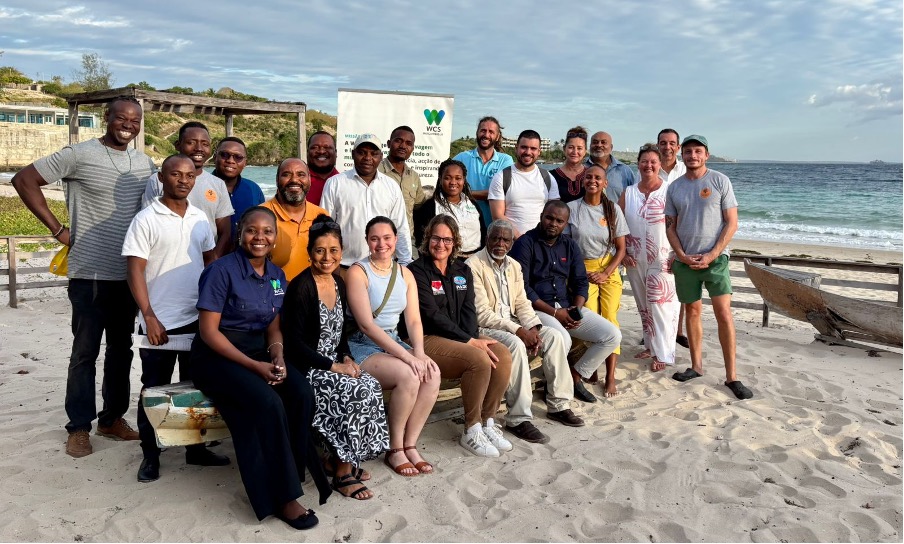
The Wildlife Conservation Society (WCS) and the National Administration of Conservation Areas (ANAC), with the technical support of the National Task Force, closed on July 8 a strategic cycle of workshops with representatives of the tourism sector, focused on the process of creating the future MPA of Memba - Mossuril.
Started on June 27 on the Island of Mozambique, this cycle of consultations had about 70 participants over the two meetings, bringing together formal and informal tour operators, members of civil society, government representatives, NGOs, academics and companies operating in the sector, from the districts of Mossuril, Memba, Ilha de Moçambique, Nacala Porto and Nacala-á-Velha.
The meetings aimed to promote a space for open and constructive dialogue on the role of tourism in the conservation of marine and coastal ecosystems, where topics such as the status of the process of creation of the ACM of Memba - Mossuril, zoning strategies, participatory management models, financing mechanisms, implications for tourism development and opportunities to enhance the natural and cultural heritage of the region were discussed.
During the inaugural session, WCS in the voice of Carlos Meirinhos - Director of the Futuro Azul project underlined that "the Marine Protected Area should not be seen as a barrier to development, but as a strategic opportunity to enhance the region's heritage, with concrete benefits for local communities and the tourism sector".
The second stage of the cycle, held on July 8, consolidated the contributions collected at the first meeting and reinforced the commitment to an integrated management of the coast, in line with the principles of sustainability. Participants reflected on the challenges of environmental and tourism governance, highlighting the need to build solid alliances between different sectors, despite the absence of some key actors during the sessions.

The contributions generated during the two workshops will be incorporated into the MPA's technical proposal, which will be submitted for public consultation in the next phases of the process. New listening sessions are planned with other impacted sectors, fishing communities, local leaders, government institutions and civil society, ensuring that the creation of the MPA takes place in a participatory, technically as consensual as possible and socially inclusive way.
This path will require continuous commitment, the ability to articulate between different actors and the sensitivity to recognize and value the diversity of perspectives. The effectiveness of the journey lies not only in the achievement of environmental and social goals, but also in the construction of a collective legacy, guided by collaboration and mutual respect.